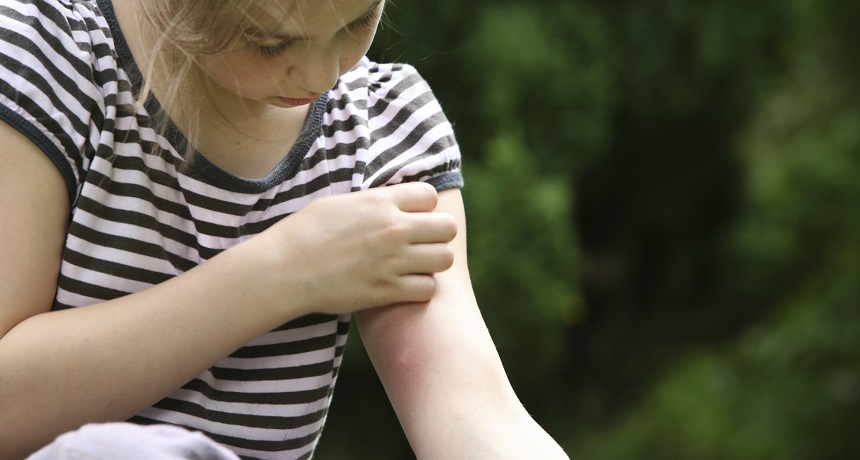Scientists say: Inflammation
When your body is injured, it knows how to respond — with heat and attack cells

Ouch! The mosquito bite on this girl’s arm is big and swollen because of inflammation.
dorioconnell
When your body is injured, it knows how to respond — with heat and attack cells

Ouch! The mosquito bite on this girl’s arm is big and swollen because of inflammation.
dorioconnell